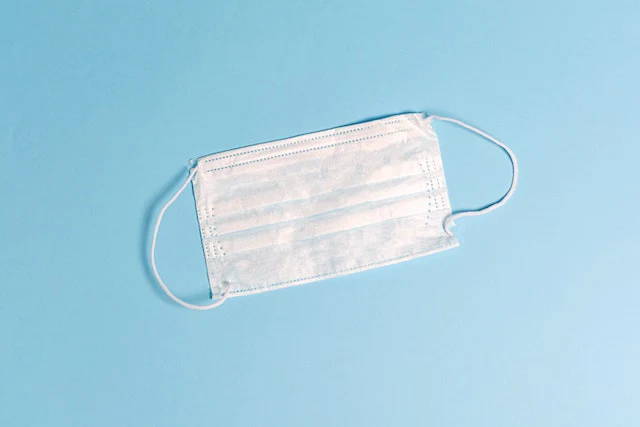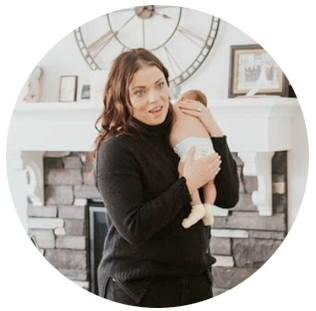
Preparing for Birth During COVID-19
| Pregnancy |
Becoming a mama is an exciting time. From the time the pregnancy test turns positive, your mind starts to race, wondering what life will be like with a baby, is it a boy or a girl, and how will you prepare and be ready. It is fun to plan the nursery, plan for birth, and plan for bringing your baby home. With this, comes some anxiety and overwhelm, as all mamas worry some about the health of their baby and feel overwhelmed by the huge life change about to occur. This is all normal.
Global pandemic was not on many mama’s lists of things to worry about. Yet, here we are. Since early March, North America has been dealing with Covid-19, and life as we knew it has changed. And for expecting and new mamas, it has brought on a lot of anxiety and uncertainty.
Giving birth brings some uncertainty. We are never sure how it will look exactly, but we do our best to educate ourselves and build a plan that feels the best. But Covid-19 has changed how birth, breastfeeding and bringing your baby home looks. The amount of information out there is hard to wade through, what is real and what isn’t. If you are pregnant, or have a new baby, this blog will help answer some questions and hopefully calm your nerves.
First off, even amidst all the pressures of Covid-19, every health care professional involved in your care will show up for you. It matters to them that you feel supported and cared for during your labor and delivery. That won’t change! Here are some specifics that may look different for you. This is not medical advice. It is imperative you ask your healthcare provider, as each hospital may have a different policy.
LABOUR AND DELIVERY
- When you arrive to give birth, there will likely be a screening checkpoint at the doors. They will take your temperature and ask you questions to determine if you are at risk of having Covid-19. Even if you were symptomatic, you will still be cared for!
- Your partner will be screened too. If he or she does not pass the screening, they will not be allowed into the hospital. Most facilities are allowing women one support person in labour. It is important to build yourself a back up plan if your partner was unwell. Who could come and support you in labour? Build a list of a few people and talk to them about it beforehand. It is better to have a plan, then to be scrambling at 3 am.
- Everyone will be wearing masks. This is to protect you and themselves. All healthcare workers will be wearing a mask, and they may ask you to wear one too.
- You may be tested for Covid-19. Some hospitals are routinely screening all pregnant women who arrive to give birth.
- If you are symptomatic or have Covid-19, what happens after delivery will depend on the facility you are giving birth in. There are conflicting ideas on what should happen if a mom has Covid-19. Some say moms and babies should be temporarily separated, and some say it is okay for them to be together if mom wears a mask and maintains stringent hygiene. Ask your healthcare provider.
- Your hospital stay may be shorter. You are safest at home with your new baby!
- There will be no shared fridges, so any food you need to bring in will need to be non-perishable or stored in your own mini cooler bag.
- No visitors. This makes our hearts sad, as it is the norm to have family gather around new life. Get the people in your life familiar with using facetime and google meets!
BREASTFEEDING
- Breastfeeding is still considered safe and is encouraged. This is a conversation you should have with your healthcare provider.
- When breastfeeding your baby, it is so important to have clean hands, some suggest wearing a mask, and ensure you are wearing clean clothes.
- After birth, breastfeed your baby within that first hour. This will help you set up a long term, ample milk supply. If you can’t breastfeed in that first hour, it is important to both hand express and pump and give your baby the expressed colostrum via syringe, cup or bottle.
- If you are symptomatic or have Covid-19, consider pumping and having your partner give your baby the expressed breast milk via bottle. Don’t panic- your baby can still learn to breastfeed! Pump and hand express every 3 hours, 24 hours a day. Ensure you are sterilizing your pump parts after every use! The Comotomo bottle will help ease the transition between breast and bottle.
As soon as you are well, try breastfeeding again, and reach out for support if you need it.
BRINGING BABY HOME
- This one is a tough one! We gather around new parents to support and encourage as they transition into their new role. With Covid-19, it is imperative we all socially distance from each other. The safest thing for you and your baby is to have no visitors inside your home until we are told it is safe to do so. This means your family and friends will need to be creative, with online visits and hopefully some meals dropped off on your doorstep!
- Do your research on supports before your baby is born. Support is still out there, it just may look a little different right now! If you are looking for feeding our newborn support, The Mama Coach can help you virtually!
We know. It is a long list of change, but you will be cared for and supported through your birth and bringing your baby home. Our hearts are sending you all so much love and support as you move through this. You got this, mama.
Written by Carrie Bruno
Carrie Bruno is a Registered Nurse, IBCLC Lactation Consultant, Sleep coach and founder of the North American company, The Mama Coach. The Mama Coach is a group of Registered Nurses committed to making motherhood easier by providing prenatal and postnatal education and support.



